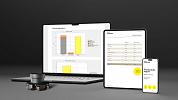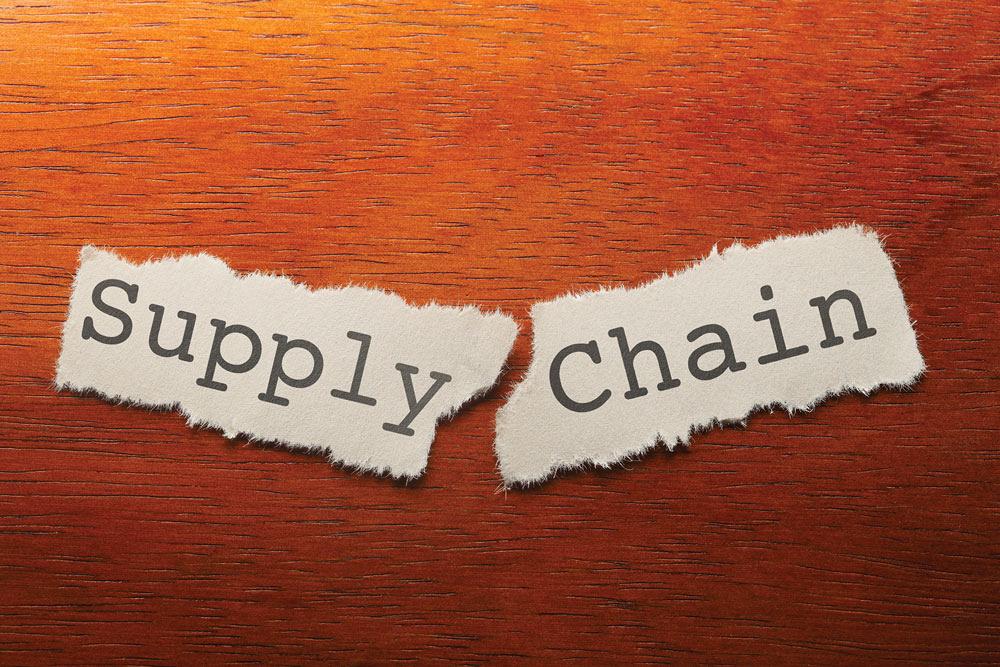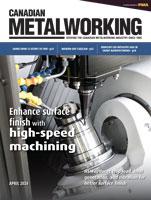Vice-President
- FMA
- The Fabricator
- FABTECH
- Canadian Metalworking
Don’t let your lease pre-approval run out
COVID-19 has caused delays and shortages up and down the supply chain
- By Ken Hurwitz
- April 15, 2022
One of the unanticipated problems that COVID-19 created—and that list is very long—is disruption to the critical product supply chains required to manufacture equipment. While the most successful machine tool builders manufacture many of their own parts, such as spindles, ball screws, and guideways, there still are a lot of required parts that they do not produce.
The best example is a machine’s CNC, which requires computer chips. A worldwide shortage of chips has affected many industries, including ours.
Supply chain issues need to be considered when you decide to add a new piece of equipment, particularly if you must pay out a large deposit.
When it became apparent that new equipment might be delayed because of supply shortfalls, there was a rush to purchase those machines that were already in stock or being built.
I believe that one of the reasons CMTS 2021 was smaller than it has been in decades, beyond the obvious health and safety concerns, was that many machinery sellers did not have machinery available to put on a show booth.
When manufacturers start looking for a new piece of equipment, they normally are doing so because they have just landed new work and are under pressure to get a new machine on the floor to make parts quickly. They spend the majority of their time scouring the market to find a suitable machine (at a reasonable price) that can be delivered quickly and then they start the process of arranging financing.
Getting financing approval in place for a new machine can happen as quickly as one or two business days if the borrower has everything required to submit an application, including up-to-date financial records.
Lease Approvals Need Refreshed
Typically, lease approvals are good for 90 days. But what has been happening lately is that, because equipment deliveries are so far out, approvals need to be refreshed at least once before the equipment actually is delivered and funded by the lender. Should the approval expire, a new set of financial records are required, and it does leave open the possibility, even if it is remote, that the application will not get re-approved.
Because machine availability is very limited, manufacturers that are buying directly from the factory need to put down a large deposit, typically 20 to 30 per cent, just to get a machine on order. It can be some significant money.
This is where dealing with a leasing company that has manufacturing industry experience can help. If the borrower is approved for 100 per cent financing of the machine, the lease can be arranged so that the funder supplies the deposit and starts the lease.
The benefits of this are twofold. First, it benefits working capital and cash flow because the borrower doesn’t put up the required deposit. Second, and more importantly these days, the lease starts and, therefore, the concerns about the lease approval lapsing before the equipment is delivered dissipate.
Other Deposit Options
Other options exist to come up with a deposit, including refinancing existing shop equipment and converting some of that equity into cash. This practice has become much more common in the last few years. Leasing companies now often rewrite a lease, which means they make the remaining payments and start a new lease, so the rest of the payments are stretched out over a longer term with a reduced monthly payment.
This same financial process allows a manufacturer to arrange a sale/leaseback of an existing machine, which is a transaction that conveys an asset’s title—at an agreed-upon price—to a financial institution in exchange for a lump-sum cash payment.
The manufacturer then leases the machine on a long-term basis while retaining exclusive possession and use of it, but no longer owns it until the transaction has been paid back in full.
This type of financing works well for good brand-named machine tools because, when they are maintained properly, they consistently hold their value.
As an example, I have a customer who leased a new $200,000 vertical machining centre with a five-year term from me. The original lease was paid in full, and the customer took full ownership of the machine. Since that original lease I have, on two separate occasions, raised money against that same machine when the company required working capital.
The point here is that even older machine tools still maintain enough value that a lender with experience within the industry has no problems providing funds using it as collateral.
There is no doubt COVID-19 has had unanticipated and far-reaching effects on the supply chain, and it looks like it may take years until we are back to normal or whatever the new normal will eventually become. This means new thinking and methods need to be taken into account when ordering machinery and equipment.
Ken Hurwitz is vice-president, Equilease Corp., 416-499-2449, ken@equilease.com, www.equilease.com.
subscribe now


Keep up to date with the latest news, events, and technology for all things metal from our pair of monthly magazines written specifically for Canadian manufacturers!
Start Your Free SubscriptionAbout the Author

Ken Hurwitz
41 Scarsdale Road Unit 5
Toronto, M3B2R2 Canada
416-499-2449
- Trending Articles
Automating additive manufacturing

Sustainability Analyzer Tool helps users measure and reduce carbon footprint

CTMA launches another round of Career-Ready program

Sandvik Coromant hosts workforce development event empowering young women in manufacturing

GF Machining Solutions names managing director and head of market region North and Central Americas

- Industry Events
MME Winnipeg
- April 30, 2024
- Winnipeg, ON Canada
CTMA Economic Uncertainty: Helping You Navigate Windsor Seminar
- April 30, 2024
- Windsor, ON Canada
CTMA Economic Uncertainty: Helping You Navigate Kitchener Seminar
- May 2, 2024
- Kitchener, ON Canada
Automate 2024
- May 6 - 9, 2024
- Chicago, IL
ANCA Open House
- May 7 - 8, 2024
- Wixom, MI
















